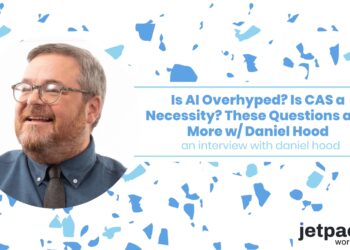Krishna Pendyala on How to Avoid Burnout in 2020

Firm owners trying to adjust to recent challenges need to take a moment to understand and manage their psychology during this time. In today’s Growing Your Firm podcast, we interviewed one of David’s mentors, Krishna Pendyala.
Krishna is an expert on the art and science of human judgment and choice making. His pioneering work on judgment quotient, or JQ, is being recognized as the third intelligence beyond the intelligence quotient, IQ, and emotional quotient, EQ. Besides such valuable contributions, he is also a co-founder of several technology companies and the author of the book, Beyond the Pig and the Ape. He was also a COO at a financial firm at an earlier point in his career, so he offers us advice from a very fresh perspective.
Resources
Summary
- Sidestepping Overreaction
- Task Delegation
- The Mind Break
- The PIG (Pursing Instant Gratification)
- The APE (Avoiding Painful Experiences)
- Depletion:Repletion:Debit:Credit
- The Addiction of problem-solving
Related Links
- Remote Work Tactics Your Firm Needs Today, Next Week, and In a Month
- How to Fire Yourself From Your Firm
- How and Why You Should Intentionally Work With Fewer Clients
Sidestepping Overreaction
Business owners are in a sticky situation where they have had to act fast to solve widespread disruption caused by the coronavirus. There has been a surplus of information about how to set up an efficient work from home environment. Several businesses are trying to make forecasts and plans of action for the upcoming 6-18 months.
There is so much uncertainty right now at nearly every sector of life. However, very seldom do CPAs consider how their reaction to the crisis may very well contribute to the anxiety that our situation is causing. Even if everything is going according to plan on the business end, if there is some trouble at home with the family, then the health of our economy is affected. The economy as a whole is intimately tied to our public and private lives.
Krishna, who has a penchant for stories, warns about overreaction with a parable. Imagine that you see a candle by a couch. As a knee-jerk reaction to seeing the candle fall over, you rush to push it out of the way only to accidentally toss it into a Christmas tree. We are in a similar crisis now, and it is just as important that we don’t fall into panicked thinking. Our focus should be, instead, to consider how we react so that we can make solid, forward-thinking choices in the upcoming months which will create value for our clients.
Task Delegation
Let’s continue our story. Imagine that you’ve had to evacuate the entire house — as you should if you set a Christmas tree on fire.
Everyone is standing outside in the street, in shock as the house is burning down. But you know what not one single person is thinking about? Considering where they are going to stay or how they are going to rebuild. One person simply cannot mentally process that much change all at once. When they try, they may not do as well because their minds are preoccupied.
As a solution to this human problem, Krishna suggests a strategy for removing obstacles in times of crisis. He advises that you delegate the following categories of tasks to three people:
- Tasks that cover immediate concerns and survival
- Matters that need to be addressed urgently
- Long-term goals to maintain stability
While it may be tempting to do everything ourselves, we know from previous podcasts about the detriment of handling all of the major tasks of a firm on our own. In many respects, Krishna’s advice is quite similar to the advice that Liam McIvor Martin recommended as we prepare for remote work: what we really need to accomplish today, next week, and next month.
The Mind Break
As we consider what to do in the here and now with stay-at-home orders in place, we’re having to make several adjustments to our routine. Sports fans can’t watch sports, so now they have to replace it with something else. When people lose interest or become bored with a new stimulus, they refer to their phone. Often, people retreat to their phone or to YouTube for a quick high which Krishna calls the PIG, or Pursuing Instant Gratification. The opposite of this is what Krishna calls this an APE, an acronym for Avoiding Painful Situations. The PIG and the APE often act in cahoots with each other, causing distraction and preventing clarity.
We end up overstimulating our minds, never really giving it a break. Krishna elaborates on the complexity of the issue further by using credits and debits as an analogy. Meanwhile, as CPAs try to help clients, they find themselves debiting their time and attention to the point of depletion and burn out. Seldom do they give their minds a break, allow credit to build, and replete themselves.
This can be challenging for business owners, perfectionists, and people with Type A personalities. Identifying a problem and finding a solution can become addictive. Achieving their goals, whether they be money or freedom, is a high that motivates them to innovate. Even when the reminder to break away from a stimulus occurs, slowly yet surely they find themselves back at work.
Problem-solving is the way such people validate themselves to the world. Then suddenly, COVID-19 forces these folks to stay home, and such ambitious people hold the fallacious belief that there isn’t another problem to solve. Krishna eloquently explained, “There are more problems than you can possibly solve.”
Continuing with the debit and credit analogy for mental depletion and repletion, Krishna recommends reframing the issue and creating—or rather discovering—a credit side of problems to solve. What matters is allowing your mind to really take a break from the mental work we set our mind to complete.
You can learn more about awareness in a business context in the full episode. For those who would like more information about Krishna Pendyala, you can find him on LinkedIn, reach him on his website, or purchase his book Beyond the Pig and the Ape.





